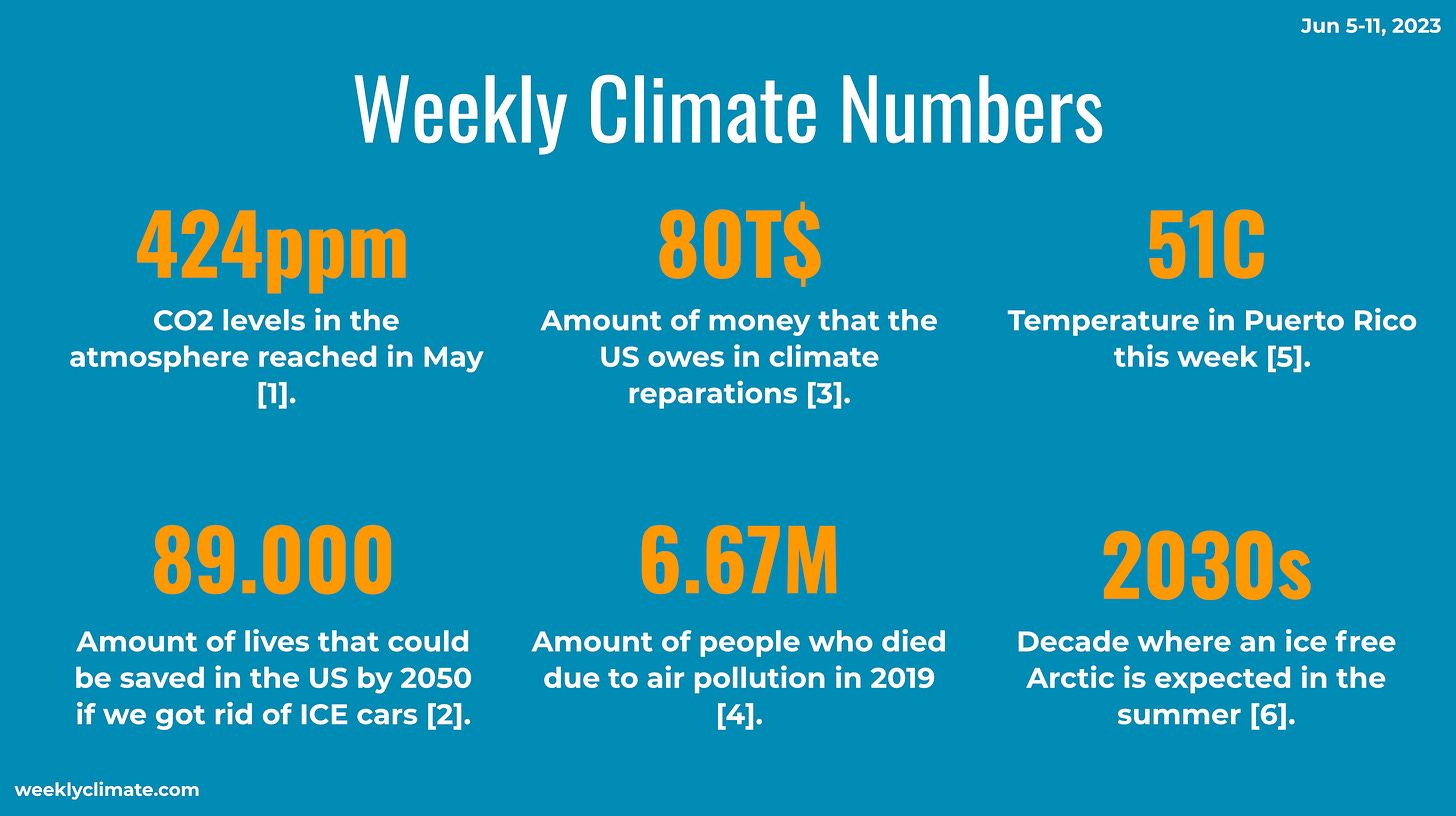[Jun 5-11’23] Fastest energy change in history
Wildfire smoke undoing anti-pollution work, talk about pollution instead of climate change and UAE oil company have had access to COP28
Welcome to this week’s edition of The Weekly Climate 🎉
References: [1], [2], [3], [4], [5] and [6].
‼️News you can’t miss
Here’s one important scary/bad (🙀), good (😻), interesting (😼) and fossil (💩) news item.
🙀 Smoke from wildfires are undoing the work to reduce air pollution
😻 Solar is creating the fastest energy system change in history
😼 The terminator says talk about pollution instead of climate change
💩 UAE state owned oil company Adnoc have access to COP28 e-mails
👩⚕️ Status: Climate & Science
Let’s look at how we’re doing this week!
[#hurricanes] — Here’s a good article on how hurricanes are impacted by climate change. In short, climate change has intensified hurricanes, causing them to intensify faster, drop more rain, and persist longer after reaching land. Rising sea levels also push tidal waters further inland, making storm surges more dangerous and deadly. While forecasting a hurricane's path has become easier, forecasting intensity remains a challenge due to the many smaller-scale ocean and atmospheric conditions that impact it.
[#co2levels] — Atmospheric carbon dioxide levels have reached 424 parts per million (ppm) in May, marking a 3.0 ppm increase from May 2022 and the fourth-largest annual increase in NOAA's record. The levels are now more than 50% higher than they were before the industrial era, and rising CO2 levels amplify extreme weather events, disrupt marine ecosystems, and cause ocean acidification. Carbon dioxide pollution is generated by burning fossil fuels, cement manufacturing, deforestation, and agriculture.
[#arcticmelt] — A new scientific study suggests that the first summer on record that melts practically all of the Arctic’s floating sea ice could occur as early as the 2030s, about a decade sooner than previously predicted. This milestone of climate change could materialize even if nations manage to curb greenhouse gas emissions more decisively than they are currently doing. The effects of the melting extend far beyond the region, including global sea-level rise and impacts on weather events like extreme rainfall and heat waves in temperate parts of North America, Europe, and Asia.
[#heat] — Puerto Rico is experiencing record-breaking heat with a heat index as high as 51C, attributed to a heat dome, El Niño, and climate change. The heat wave is expected to persist through at least Tuesday and is compounded by other climate-related threats, such as rising dangers of heavy rainfall and powerful storms in the region. Other parts of the world should anticipate similar hot spells in the coming months due to climate change and an exceptionally strong El Niño.
📰 The 7 Grand Challenges
⚡️Decarbonize Electricity
Clean electricity is the one do-or-die challenge we must solve.
Keep reading with a 7-day free trial
Subscribe to The Weekly Climate to keep reading this post and get 7 days of free access to the full post archives.




